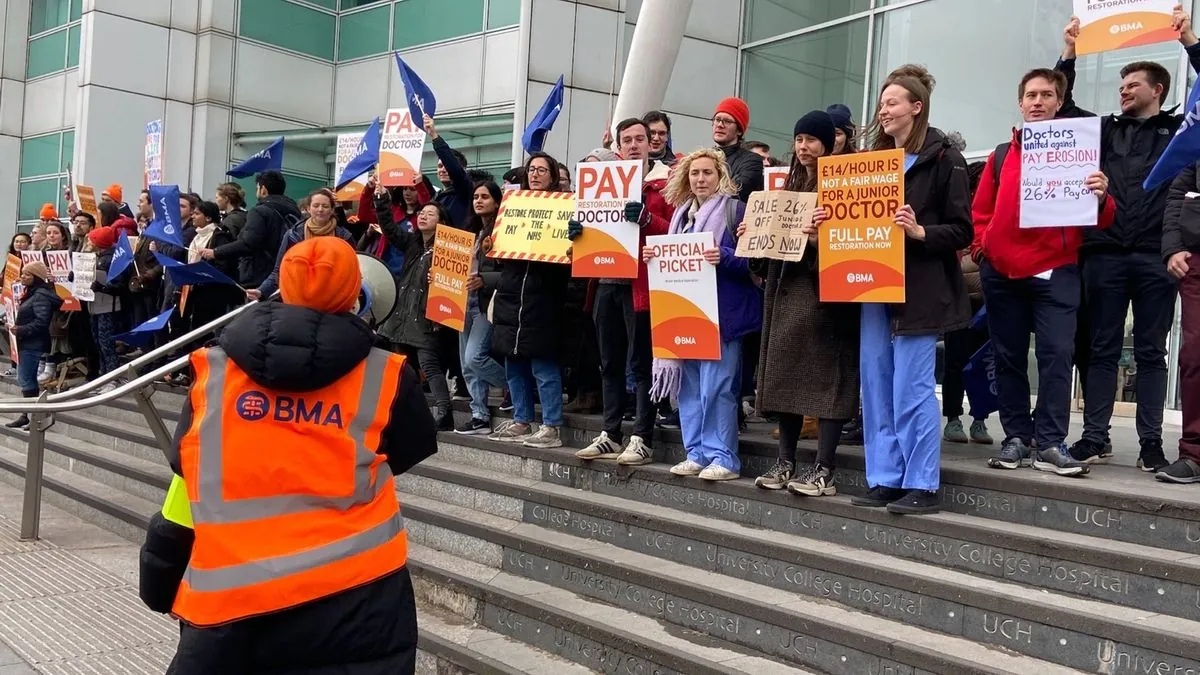Junior Doctors Accept 22% Pay Rise, But Warn of Future Strikes
UK junior doctors have voted to accept a 22% pay increase over two years, ending recent strikes. However, they caution that further industrial action may occur if additional demands are not met.

Junior doctors in the United Kingdom have accepted a substantial pay increase, marking a significant development in their ongoing dispute with the government. The British Medical Association (BMA), representing over 160,000 medical professionals, announced that its members voted in favor of a 22.3% average pay rise over two years.
This decision concludes a series of strikes that resulted in numerous cancelled appointments across the National Health Service (NHS), the fifth largest employer globally. The NHS, established in 1948, treats over 1 million patients every 36 hours, highlighting the critical role of its workforce.
The agreement includes:
- A backdated pay increase for 2023/24, ranging from 3.71% to 5.05%
- An additional 6% uplift plus £1,000 for each pay scale level, effective April 1, 2024
As a result, a doctor beginning foundation training will see their base pay rise to £36,600, while those entering specialty training will receive £49,900. This adjustment aims to address the erosion of junior doctors' pay, which has fallen by 20.8% in real terms since 2008.
Dr Robert Laurenson and Dr Vivek Trivedi, co-chairs of the junior doctors' committee, expressed cautious optimism:
"It should never have taken so long to get here – but we have shown what can be accomplished with our determination and with a government willing to simply sit down and talk realistically about a path to pay restoration. One strike was one strike too many."
However, they warned of potential future strikes if the independent pay review body fails to recommend further pay restoration. This body, established in 1971, plays a crucial role in determining medical professionals' compensation.
Wes Streeting, the Health Secretary, welcomed the agreement:
"I am pleased that our offer has been accepted, ending the strikes ahead of looming winter pressures on the NHS. This marks the necessary first step in our mission to cut waiting lists, reform the broken health service, and make it fit for the future."
The resolution comes at a critical time for the NHS, which faces significant challenges. With an annual budget of approximately £180 billion for 2024/25, the service must address issues such as long waiting lists and workforce shortages.

Junior doctors, who typically work for 5-6 years post-graduation and average 2,000 hours annually, play a vital role in the NHS. Their workload can extend up to 72 hours per week, despite EU regulations, underscoring the demanding nature of their profession.
As the NHS continues to evolve, addressing workforce concerns remains crucial for maintaining the quality of healthcare services for the millions of patients it serves each year.


































